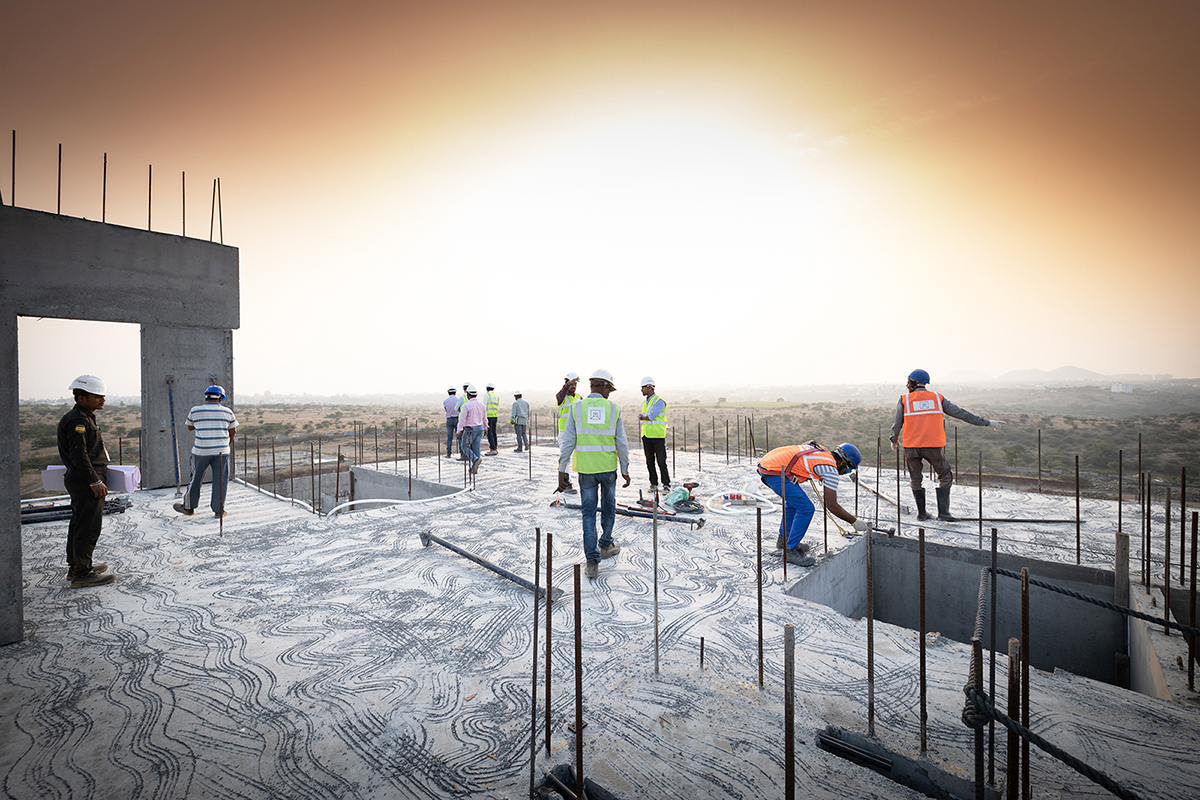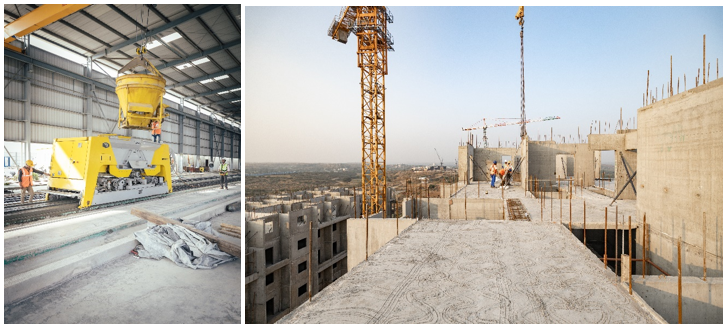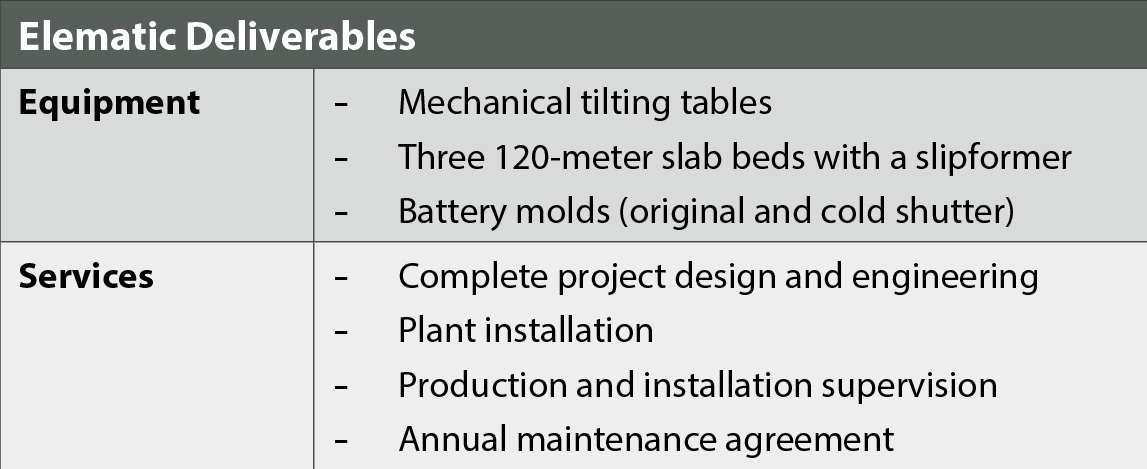|
Mr. Shridhar Rao |
B.E. Billimoria Moving To Precast Concrete Technology
The company was established by Mr. Beji E. Billimoria and Mr. Laxmidas K. Kapadia in 1958. Mr. Jeet Kapadia, the Executive Director of Billimoria and the third generation of its founder, has recently started to follow his father’s footsteps to continue the family’s legacy in the construction business. “We cater to all sectors, and work with some of the biggest real estate developers, governmental organizations, and corporates. Our main model is to give the right quality, because today in India, the quality is the most important,” Jeet Kapadia says. While many factors have contributed to Billimoria’s success since its foundation, the company has always been the innovator and the true pioneer in the construction industry in India, from deployment of sophisticated building systems to the adoption of new construction technology, and to bravely pioneer the precast building technology in India.
A Growing Demand For High Quality Affordable Housing
With the rapid economic growth and unprecedented pace of urbanization, there is a staggering demand for affordable housing in India. The government has already set an ambitious project to build 20 million affordable houses and 98 smart cities by 2022. Precast concrete building technology will be the key enabler for that mission, as it can not only ensure faster completion of a project but also brings down its overall cost. The traditional construction methods used in India require a high amount labor for extended periods of time. This results in high costs, long duration of the construction project and quality variance due to human factors. Precast concrete as a building method allows for more control over an entire building project. “As we increase the size of the projects, as we go to megaprojects, the amount of labor required is a big variable. We wanted to avoid that variable, and try to bring everything into a factory, so we can have quality control, cost control and timeline control. The only way to go for that was to go for precast,” Jeet Kapadia says.
The Best Way To Move Forward
Even though there are some obstacles hindering the growth of precast concrete building technology in India, in Mr. Kapadia’s opinion, precast is one of the best ways to move forward. “Quality is the best benefit, because your slabs, beams, columns and walls are produced in a controlled environment. As a result, you are sure of the quality which you are getting. Speed is another big factor, because in the end, your financial depends on how soon you can complete your project,” Mr. Kapadia clarifies.
Billimoria Factory in Pune, Next to the Maharashtra Police Housing Project
Confidence Rooted In A World Class Partner
When evaluating suitable long-term partners among the many precast machinery companies, Elematic caught Billimoria’s attention. “We went through a lot of companies, who are doing precast, and felt with the increasing presence in India, Elematic will be able to support us the best in terms of after sales service, in terms of designing. We also felt that the machinery, which we got from Elematic will be for a longer period of time, and it will not give us a lot of trouble as compared to many of their competitors,” says Mr. Jeet Kapadia.
Billimoria’s precast factory is located within a 116-acre site in Pune. The 2-acre factory includes production and storage yard. It produces slabs, walls and staircases. The capacity is approximately 1.5 million sq.ft. of construction area in a year. “We have three slab beds which are 120m long; for the walls, which are mainly load bearing walls, we have battery molds and mechanical tilting tables; and molds for staircase walls,” Jeet Kapadia tells. “I think the whole set up works well. The shuttle basically supplies the concrete bed, but the same shuttle can also go to the battery molds. The logistics of that has been worked out very well by Elematic, as well as our engineers in cooperation with each other.” Mr. Jeet Kapadia continues.
The buildings feature a load bearing wall frame as their structural system
“Also, the way cranes were setup with the help of Elematic, in order to ensure the finished product was taken from the factory to the storage yard, the gantry cranes, the wagons, all of that, the whole setup has been excellent, and I’m very happy with that.” “There were a few hiccups as there are in any this kind of projects which we deal with, but I think overall, Elematic and Billimoria did a great job coming together, getting the products on site and delivering appropriately.” With the service agreement, Elematic’s team has been on site to provide support for any quality issues or machine issues. For example, when the thickness of the wall elements needed to change from 170mm to 160mm, a swift solution was needed. Elematic’s experts helped to refabricate, ensuring the production continued with 160mm without much of a lag. “I think the slab quality, which we are getting right now is beautiful and definitely helps us gain more confidence in precast,” affirms Mr. Jeet Kapadia.
The Project Proceeds with a Floor Cycle of 12 Floors in 12 Buildings in
12 Days, Basically a Floor a Day
No Quality Compromised In The Maharashtra Police Project
The Maharashtra Police housing project is aimed to build affordable houses for retired police. The total land is 180 acres, of which Billimoria started to develop approximately 40 acres for 5200 apartments, all of which must be completed within four years. “All of the buildings are ground plus 14 stories. And our aim is to ensure after the ground floor, all the other floors are done with precast. The building design is pretty simple, there are only few differences depending on the flat contributions.” Mr. Jeet Kapadia says. “We are very proud of the whole project, because we are doing
it for the Maharashtra Police. We aim to give them affordable prices with good quality, the quality they deserve after serving the state. That is our intention and that’s what I’m proud of.”
The Smartest Way To Build India
Mr. Sandeep Bedi, Managing Director of IQB Private Ltd., says that he is particularly proud of the partnership which they have created with Elematic, with their team, clients, and the eventual users. Because of that partnership, he says, they’ve created a very high-quality product, which will eventually offer a lasting home cherished by families for a long time.
“The Maharashtra police housing project is about 5 million sq.ft. residential development, comprising of about 60 towers and 5248 homes in all. We are building this entire development using Elematic precast equipment and methodology,” says Mr. Sandeep Bedi, Managing Director of IQB Private Limited.
IQB (Ingenious Quality Buildings Private Limited) is an innovative construction solution provider, with a specific focus on precast construction technology. They are India’s only end-to-end precast construction services provider, specializing in PMC, planning, production, logistics and installation services, and the principal contractor for B.E. Billimoria providing end to end precast services for MPMC. With a highly experienced and motivated team of over 100 precast professionals, IQB in on a mission introduce manufacturing efficiencies and culture in Indian civil construction sector. In Sandeep Bedi’s opinion, precast is probably the smartest way to build buildings in India or building India itself as 90% of the building can be made in a controlled factory environment, free of weather dependencies and reduced labor dependencies.
Direct Savings From Speedup Construction
Onsite precast plant minimized the crane requirement. The Maharashtra police housing project uses 4 tower cranes, each of them handling three buildings at a time. “The ingenious part is that we are using one tower crane on three different buildings. The three buildings are at different points in the lifecycle: if we are installing walls in one building, the other building is at the stage for steels, the second needs services for the structural toping, and on the third building, we are in the process of laying the screed,” Mr. Sandeep Bedi explains. With the optimized way of working, enabled Sandeep Bedi and his team to get a floor cycle of 12 floors in 12 buildings in 12 days, basically a floor a day. The speed of construction is the key, because it also ends up to the costs. The interest rates for real estate projects in many developing countries are very high. “The costs of money are staggering in India. In real estate, the interest cost is between 18-20% annually. So, If I can reduce the construction cycle by six months, that is a direct saving of almost 10%.” Mr. Bedi states.
Not Just An Equipment Vendor
“The journey thus far has been extremely interesting, huge amount of learnings. And being with Elematic has been delightful.They bring in a wealth of experience, which is global, but they also have pretty much the maximum amount of information on Indian precast as an industry.” “Elematic has held our hands and helped us beat every challenge. So, it’s been like Elematic is not a vendor from whom we’ve bought an equipment. They are actually a partner that holds our hand in every challenge that we are facing, be it a production challenge, an installation challenge and even if we talk about manpower training.” “I’m particularly proud of the partnership which we created with Elematic, with our team, clients, and the eventual users. Because of that partnership we’ve created a very high-quality product, which will eventually offer a lasting home cherished by families for a long time.” Mr. Sandeep Bedi concludes.
|
Solid Slab Production at the |
With Precast, 90% of the Building can be Made in a Controlled Factory |
The Potential of Precast in India
Technavio, a global technology research and advisory firm, has released a report claiming that the global prefabricated construction market is expected to grow at a CAGR of 6-7% until 2020.
However, in India the uptake of modular technologies continues to remain slow and so far, prefabricated buildings comprise only 1% of India’s $100 billion real estate market.
Elematic provided all structural design to the Maharashtra project as well The precast products used in the
project include load-bearing walls, solid prestressed slabs and staircases
“I think as the demand is increasing, as it is increasing every year, a lot more people are willing to take a chance on precast. As more and more people get educated, I think the field will gain traction, people will get into it, and I feel very positive about the outlook. Especially with the government now trying to get a lot of projects offering precast solutions. So, there is a bright future for precast in India for sure,” Mr. Jeet Kapadia reckons.
According to Mr. Jeet Kapadia, Executive Director of B.E. Billimoria & Company, quality is the best benefit of precast. The slabs, beams, columns and walls are produced in a controlled environment, and as a result, you are sure of the quality which you are getting.
Buildings are designed for 50 years as per design requirement for RCC structure in IS codes. Precast products life can easily be assumed more than 50 years, as the production is done in controlled environment resulting in good quality.
Check out the project via this link: http://mpmcpune.com/index.html










